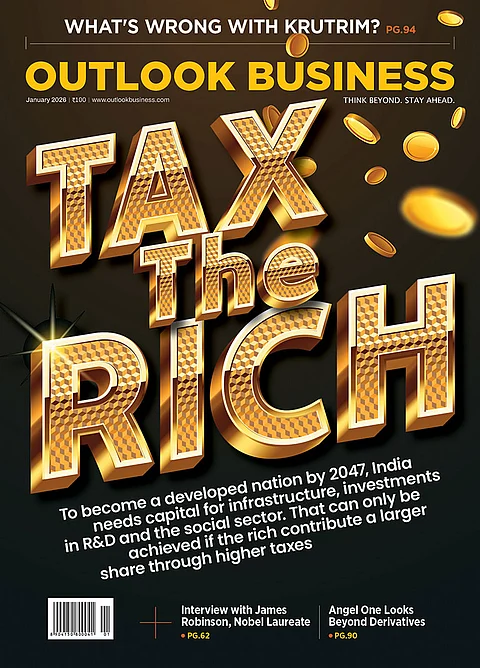Max Levchin CEO, Affirm
- This is the most exciting time in history. Data, which was more concealed, is now essentially a currency. It is a commodity, which is how I prefer to think about it. Things such as centralised cloud computing create opportunities for efficient use of resources at the edge of the network.
- The essential difference between traditional companies and disruptors is that traditional companies already have mountains of data and there is a lot to lose by misusing data, while disruptors have nothing to lose. Data is critical mass for small and large companies. As we look at data, we have the opportunity to build new businesses, have a natural network effect of data, the person or company at the centre of the cloud knows a lot more about any one participant at the edge than other participants do, they enjoy data monopoly.
- The concept of data monopoly will be dominant for the next few decades. The industries that will disrupt it the most are those that rely on a point-to-point monopoly. The last ones to go down and get completely re-written will be healthcare and finance. I say healthcare because the data regulation in this sector makes it very hard to change things. Finance is a sector where data was always thought of as a currency but this belief was confined to a very small number of people. The company that today looks like the future of finance companies is Bloomberg. The company has built a natural network effect driven store where they know everything about people using the data at the edge more than the users know.
- There are people who are thinking 100 years out. These people don’t look for an IPO or an acquisition. Typically, what they are thinking about is the creation of a natural monopoly, something that sticks around for so long because the customers don’t want the company to go out of business. The typical mindset I look for in entrepreneurs is if they strive to figure out something that the customer wants, in a way that inspires them to have it built by someone else. Because they believe that forever it will be cheaper and better if their partner produces it. This is what cloud computing is all about. One thing to notice among this new crop of entrepreneurs is that they begin with the target that I can’t allow this data disruption to put me out of business in the next six months. I have to survive for 100 years or more. The focus on customer security, strong set of values and business longevity of their concept are the qualities that define an entrepreneur today.

- The Internet of Everything is all about what we see today, that every company is becoming a technology company. Economically, it’s probably a $19 trillion cost-saving and profit-saving opportunity in the next 10 years. What you’re going to see in the future is every company, country, city, home, everything becomes digital and that information flow will allow you to change things and distinguish the winners from the losers. It is about fast innovation in the new world. If you don’t innovate fast and don’t disrupt your industry, you will be left behind. Think digital first, think Internet of Everything and think about fast innovation enabled by fast ideas.
- Business leaders need to realise that they have to be disruptors. Countries and companies who won’t disrupt will get disrupted and be left behind. Companies have to reinvent themselves every three to five years. Enterprises don’t reinvent themselves and that’s why 90% of start-ups end up crashing and burning in a few years. The way to deal with it is to build on partnerships.
- When you disrupt yourself, its painful and usually you get penalised by the market, but if you don’t disrupt yourself, then you get put out of business. Don’t think about being the first but think about the last time you have to do things the traditional way, this can change the world in a unique way.

- Our business is a digital business and most of my discussions with CEOs will be around digitalisation and rationalisation and sometimes digitalisation could play a role in rationalisation. Digitalisation is enabling new businesses. At Accenture, over six years, we built a digital business of $5 billion which is almost the same size of our business in enterprise resource planning (ERP), which we built over 25 years.
- There are five challenges that companies face with regard to digitalisation — The first is digital strategy. Based on our recent survey and 80% of the CEOs I spoke to, I can say that a majority of CEOs understand that the Internet of Everything will be the disrupter but only 7% have a plan. Second, how to organise digitalisation within the company to roll out services efficiently. Third is about how to execute digitalisation within the ecosystem. To enable digitalisation, more than one company is required, you need to partner with clients and other firms. Four, skills, to enable big data you need business scientists, you need someone to drive algorithms of the future. The fifth, data security, is a complex challenge being discussed by every board.
- The focus has also moved towards finding a balance between security and the benefits of digitalisation. Data privacy, security and data integrity are some of the challenges the society will have to face in the near future. Data integrity is where you can access my data but you will not be able to change it. I want my data to be secure but I want it to be used if there is a huge benefit, for instance, if is it being deployed in the public healthcare sector. All techniques in the future will move from data accumulation to data encryption.

- If you look at the last 30 years of China’s development, a lot of people say the main driver is low cost of capital, but I believe one very important driver is information technology (IT). I started my business 24 years ago from the university campus. I was lucky that the first day of my job was also the day mobile phones were made available in China. It got popular not only because Cisco and other companies came to China with excellent software, we ourselves have become a software provider, and the Chinese government tried to build infrastructure for social security, insurance, healthcare and employment. Not only did China build roads and bridges, they also built infrastructure for IT.
- Today, around 400 million Chinese residents are Internet users, that’s almost 50% of our population. Almost 500 million people in China use smartphones, 300 million people use mobile phones to buy something. Thus, e-banking has become popular, especially the younger generation is doing everything on mobile phones, entrepreneurs try to build their own business on apps, which is a success in China. Manufacturing in China is important not just because things come out fast but because a lot of investment has been made in IT.
- In China, technology has brought about big reforms in healthcare. Most of the best doctors live and work in big cities. In tier-2 cities, there is a population of six million, and in smaller towns, quarter million, but no access to healthcare. We built a platform to bridge this gap. In villages, there are ‘barefoot doctors’ who have no medical degree but still care for unwell people. Today, with our technology, the city doctor and the barefoot doctor can be connected in real time. This means the data can be shared with all doctors. That is a real learning environment, which is all about sharing knowledge.

- Today we can convey ideas across the planet reliably with certainty, no it’s not a router, it’s quantum mechanics. When I think about what it has done to our economy, I would say it has transformed our economy into a digital economy. It is clear that every single business is now a technology business and the value that is created is based on the technology platforms and the technology that they run. In the enterprise software world, seven years ago there were 25,000 to 30,000 enterprise software companies worth $1.7 trillion market cap and today there are over 50,000 enterprises worth over $2 trillion. The expectation is that next year there will be over 75,000 enterprises worth over $3 trillion.
- The market is creating value and it’s exciting. Every company is a technology company. If you don’t transform, your industry will be transformed. We live in a world where the largest taxi company doesn’t own a vehicle, the largest bookstore doesn’t actually have a bookshelf, the largest hotelier does not have to worry about turning down service nor take a dollar of inventory on those little bars of soap. Think about how these disruptors have come and changed our world.
- In the next ten years, 20-30 billion devices will be connected, creating a mountain of data that must be used responsibly. Disruptors convince us to give some information, take that data and make life convenient. Then these companies have the responsibility to handle that data, because when that data becomes part of a target then we have a problem. In the last few years, you know with JP Morgan and many of the retailers, more than 250 million accounts were targeted. That means that information relating to around 50 million to 90 million individuals has been put out in the marketplace. It is now the responsibility of business leaders and entrepreneurs to protect that kind of data.











